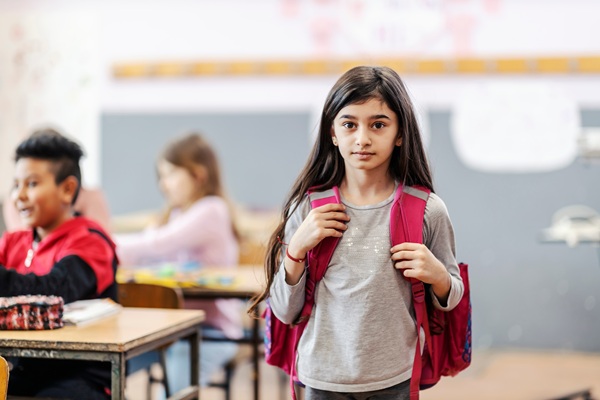Education success of Roma children starts with family involvement

Segregation in schools and a lack of resources often hinder their academic success and create educational disadvantages for Roma children. Poverty and limited access to early childhood education further limit their opportunities. This not only impacts individual lives but also hinders social mobility and integration.
The EU Roma strategic framework for equality, inclusion and participation (2020) states that the overall progress in Roma integration has been limited over the past 10 years, even if there are significant differences across policy areas and countries. Education is the area that has progressed the most, notably by reducing early school leaving and improving participation in early childhood education and compulsory schooling.
However, cases of segregation of Roma pupils in education have increased. The 2023 European Parliament resolution indicates that schools attended by Roma children often have insufficient capacity, operate on two shifts, are situated in separate run-down buildings or container schools, and offer a substandard quality of education in which Roma children are cut off from their non-Roma peers.
Engaging Roma families and fostering home-school collaboration is essential to overcome such obstacles. Among the Roma community, family is an institution of great significance which plays a crucial role in nurturing, educating and motivating children. Unfortunately, Roma children often face hurdles in school, from participation to academic success, making the involvement of Roma parents even more essential to bridge the support gap. Roma parents often feel disconnected from the school community and distant from formal education. Therefore, schools need to develop strategies and effective educational interventions to make their environments more welcoming and inclusive. This will help Roma parents feel empowered in their roles as parents and supporters of their children’s education.
By addressing educational needs and promoting desegregation, a brighter future for Roma children can be ensured. Collaborative efforts involving families, educators and policymakers are essential to create a more inclusive and equitable educational landscape. Hosting cultural events that highlight Roma traditions can break down barriers and build understanding. Providing Roma language support in early education bridges communication gaps. Workshops can give parents practical tools to support their children’s learning.
Involving Roma families in education requires a strategic, community-driven approach. A concrete example developed within an EU-funded project, the Guide for working with Roma Families, explains how to involve Roma families in the educational processes of their children. It helps professionals working on the ground and seeks to contribute to improving the educational situation of Roma across Europe by engaging Roma parents more actively. The guide aims to reduce early school leaving and increase the academic success of Roma children. It presents a methodological tool for intervention with Roma families in the school setting and proposes actions to overcome common obstacles, examples of good practices and practices to avoid. The guide presents an intervention model based on the experience that professionals have had working in education with Roma populations in the four participating countries: Bulgaria, Spain, Hungary and Romania. It can be used in different intervention contexts and in different programmes or plans and can be a helpful tool in designing a specific programme for parents.
For more resources linked to addressing educational needs and desegregation of Roma children please see:
- Study Halls for Roma Learners (Hungary) – an initiative that helps improve teacher-student relationships, provides a learning space for disadvantaged pupils and integrates Roma parents into the community;
- Amalipe (Bulgaria) – the largest organisation dedicated to better education, community development and equal integration of Roma people in Bulgarian society;
- Combating drop-out and early school leaving in Serbia – this project aimed to help decrease drop-out and early school leaving of children and adolescents at risk;
- Guide for Roma School Mediators – this guide offers tools and practical guidelines that can be adapted to different contexts;
- Local Engagement for Roma Inclusion (LERI) – this project facilitated the engagement of all local stakeholders, including Roma, in joint efforts to enable Roma inclusion.
Additional information
-
Education type:School Education
-
Target audience:TeacherStudent TeacherHead Teacher / PrincipalSchool PsychologistTeacher EducatorGovernment staff / policy makerResearcher
-
Target audience ISCED:Primary education (ISCED 1)Lower secondary education (ISCED 2)Upper secondary education (ISCED 3)
